A Complete Buyer’s Guide to Electrical Tape
With the growing number of electrical devices and appliances, odds are that you’ve come across damaged wires at least once. Quick fixes are available in the form of a widespread and cheap household item, and there’s one found in every electrician’s toolbox – insulation or electrical tape.
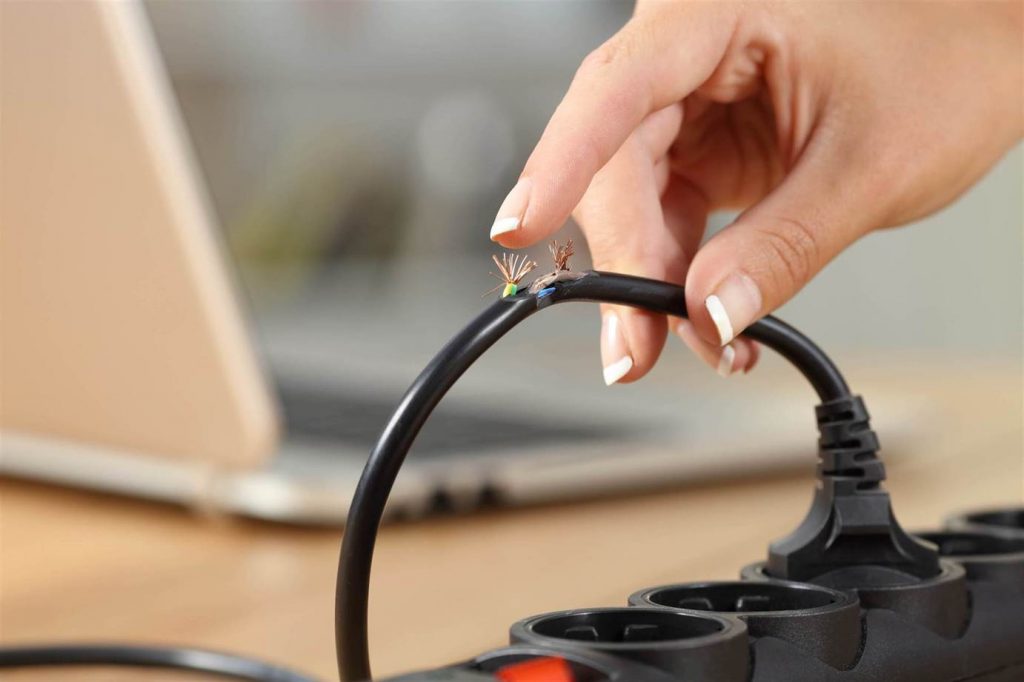
What Is Electrical Tape?
Electrical tape is basically, a type of safety tape used to insulate wires, cables or any other material that conducts electricity. Depending on its intended use, it is made of various materials, able to properly insulate against electricity, be weather and heat resistant, and flexible enough to be torn and applied by hand. It comes in a range of materials, sizes and colours, something we’ll discuss in further detail below when comparing different types.
What Is Electrical Tape Used for?
When you set out to buy electrical tape online or from a brick-and-mortar store, keep in mind that it is used for minor repairs on damaged cables or wires and that it is not an end-all solution. Sealing frayed cables from your phone charger, or temporarily insulating forgotten projects, like exposed wires in renovations are instances when you can use electrical tape. However, for more demanding and thorough insulation of premises, there are other, safer solutions.
What Are the Different Types of Electrical Tape?
There are different types of electrical tape, depending on the material used. Each has varying degrees of insulation, and different amounts of heat, corrosion, and weather resistance, giving it specific uses. The most common types sold today include vinyl, PVC electrical tape, and self-amalgamating tape. Let’s take a closer look at each one.
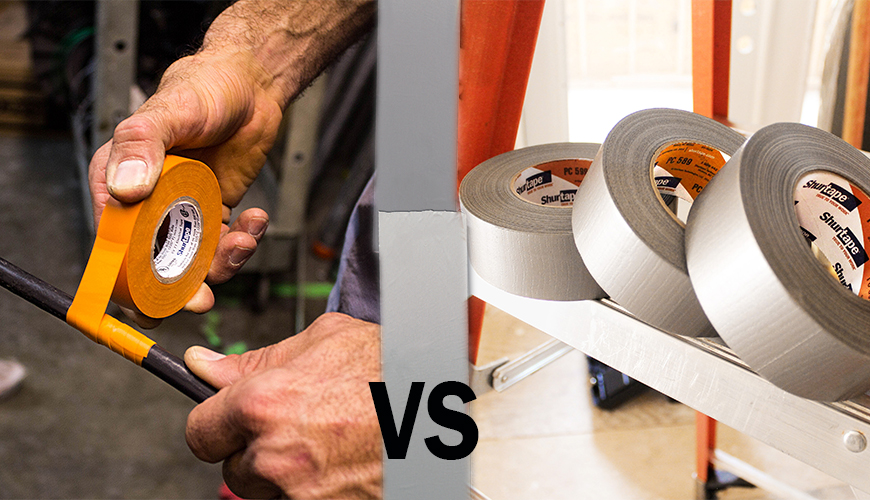
Vinyl Electrical Tape
Developed in the 1950s, vinyl electrical tape remains the most common type still used today. It has great insulation qualities, it’s resistant to corrosion and abrasion, and can withstand heat and relatively low temperatures. It is easily applied by hand, and with an adhesive lining, sticks well. With widespread use in many household applications, and for general insulation usages, like wire-bundling or connection insulation this is the first tape you’ll need. Versatile, yet durable.
PVC Electrical/ Duct Tape
PVC tape is used in similar applications as vinyl electrical tape but it’s more resistant to abrasions and has better weatherproofing qualities. It resists extreme heat and moisture better than vinyl tape, and is the go-to choice for outdoor insulating projects. Both vinyl and PVC electrical tapes come in a variety of colours, but PVC is largely the prefered option for phasing. Different colours indicate voltage and phase of the wire, and should be applied correctly. Here’s a short description of colour-coded tape in phasing applications:
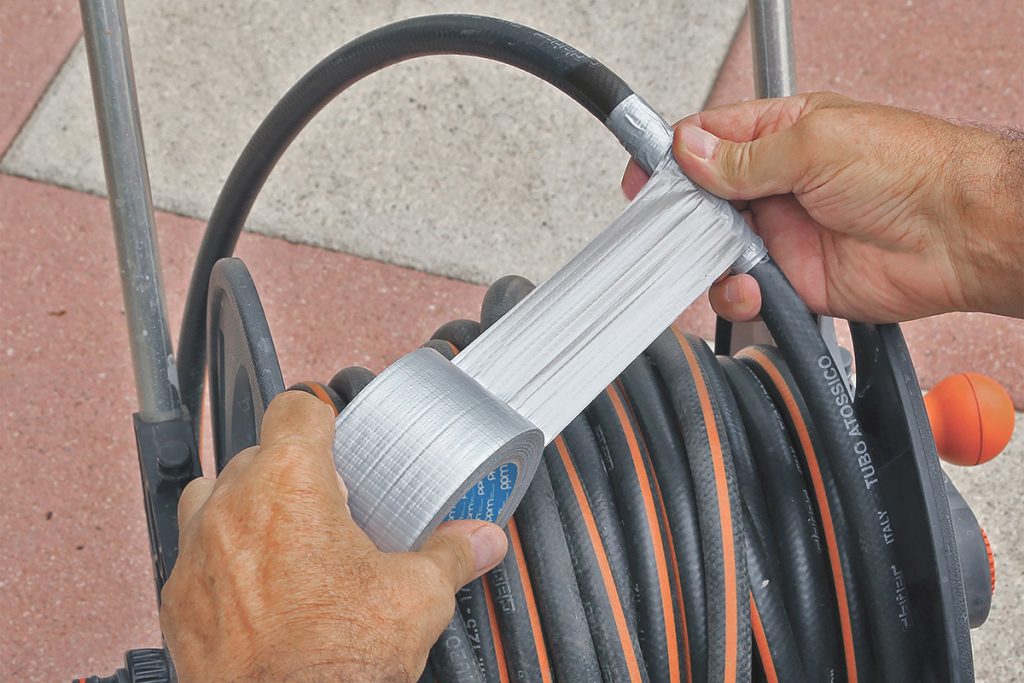
- Black- commonly used in general insulation tasks, but provides good resistance to UV light, ideal for outdoors
- Red- phase A-3 phase, 400/415V in Australia
- Blue- low voltage- 230V
- White- neutral
- Green/yellow- used for earthing
Self-Amalgamating Tape
This is a silicone rubber based tape, with no adhesive. Also known as ‘magic’ tape, it sticks to itself when stretched and wrapped around cables and connections, forming a seamless layer of insulation that is highly resistant to moisture. It is widely used in sealing outdoor applications, like exposed AV or cable connectors.
There are also variants of electrical tape made of other materials, each with specialised use. Instances include glass cloth tape, used for insulating areas with high heat levels, like motor leads and cabling; polyimide insulation tape, found in complex circuitry, and rubber-based electrical tape, often used in high voltage applications.
In addition, there are wider 100mm ‘warning’ tapes, either orange or white in colour, used as protective markings for underground cabling. So bear in mind what you need when buying electrical tape.
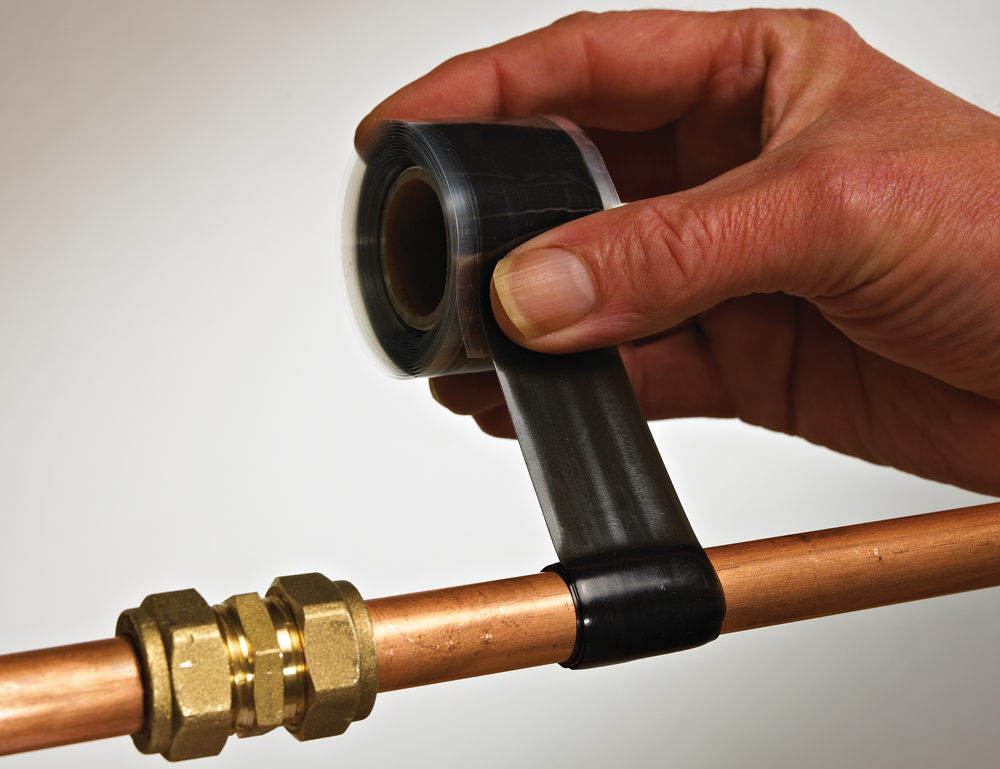
When NOT to Use Electrical Tape
Electrical tape is a good insulator for minor tasks done at home. There are alternatives, generally preferred by professionals, when more complex insulation solutions are involved, like extensive cabling and connections. Heat shrinks, are the electrician’s choice when connecting wires, and provide better insulation and durability than electrical tape. They come in varying widths and are cut and heated, to give a better-sealed finish.
Protective routing of one or more cables is frequently done with electrical conduits, usually sold and installed with compatible fittings, like couplings, housings and connectors. Insulated wire nuts, or caps, applied to the end of an exposed wire, can also be used. Professional solutions like these give you safer and longer-lasting insulation than electrical tape.
Alternatives to Electrical Tape at Home
Though widely available, regular duct or ‘sticky’ tape should NOT be used for electrical insulation. It is less durable, has little to no insulation, tears easily, and cannot provide adequate protection from heat and moisture. It can potentially catch fire or permanently damage your devices and appliances.
Other Uses of Electrical Tape
Electrical tape can be a viable substitute for other tape types, in various scenarios, considering its low price and general robustness. Painters may use it as an alternative to masking tape, athletes to protective athletic tape, and decorators and creatives for purposes limited only by imagination.
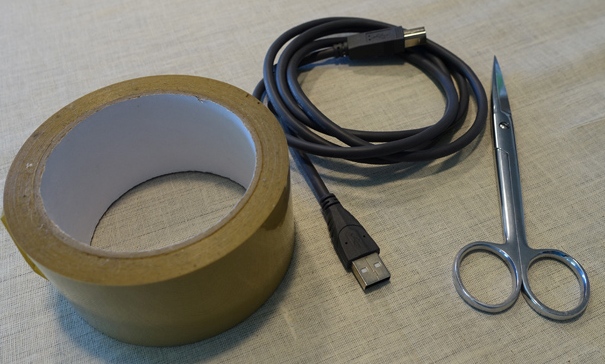
How and Where to Buy Electrical Tape
Most general hardware stores stock the most common types of electrical tape, particularly unbranded black vinyl tape. For specific variants from established industry manufacturers, like self-amalgamating and branded PVC electrical tape, your safest bet is a store specialising in electrical merchandise. Here you’ll also find bundled versions of electrical tape, usually in packs of 10 rolls. If looking for further insulation solutions, and have any queries you’d like answered, specialised stores can provide expert advice on particular products. And since they buy wholesale, their tape is always in stock.
Online vendors, some of which are also online versions of brick-and-mortar stores, are time and cost-effective, generally with lower prices due to lower labour and storage costs. They offer the benefit of same-day delivery to your specified address and the option of buying in bulk. Orders are processed promptly. If you’re a full-time electrician, this can save you valuable time, as products are delivered to your workplace when you need them.
Whether you’re just patching up a few frayed wires at home, or a seasoned electrician, it’s always helpful to have electrical tape at hand.



